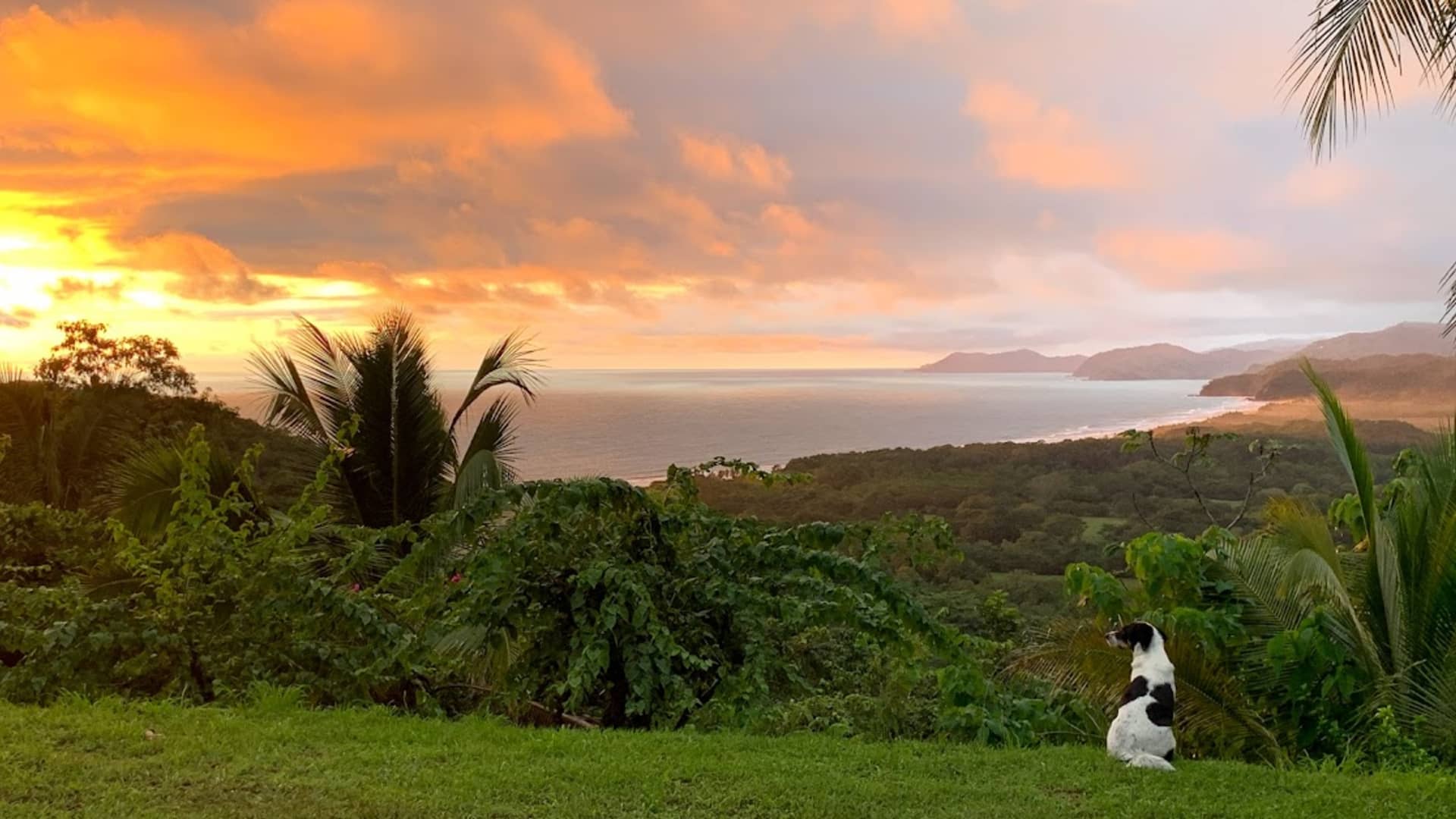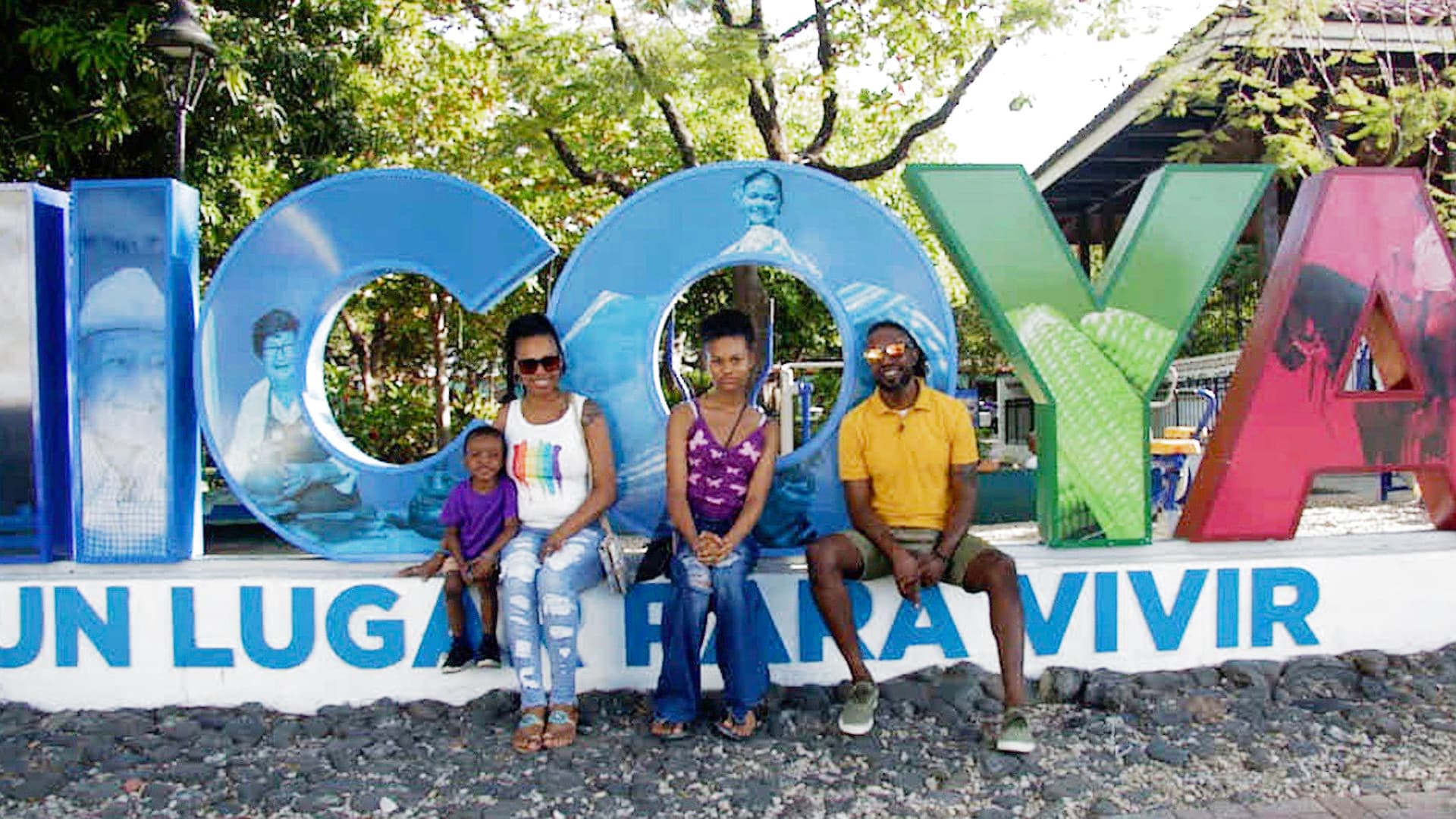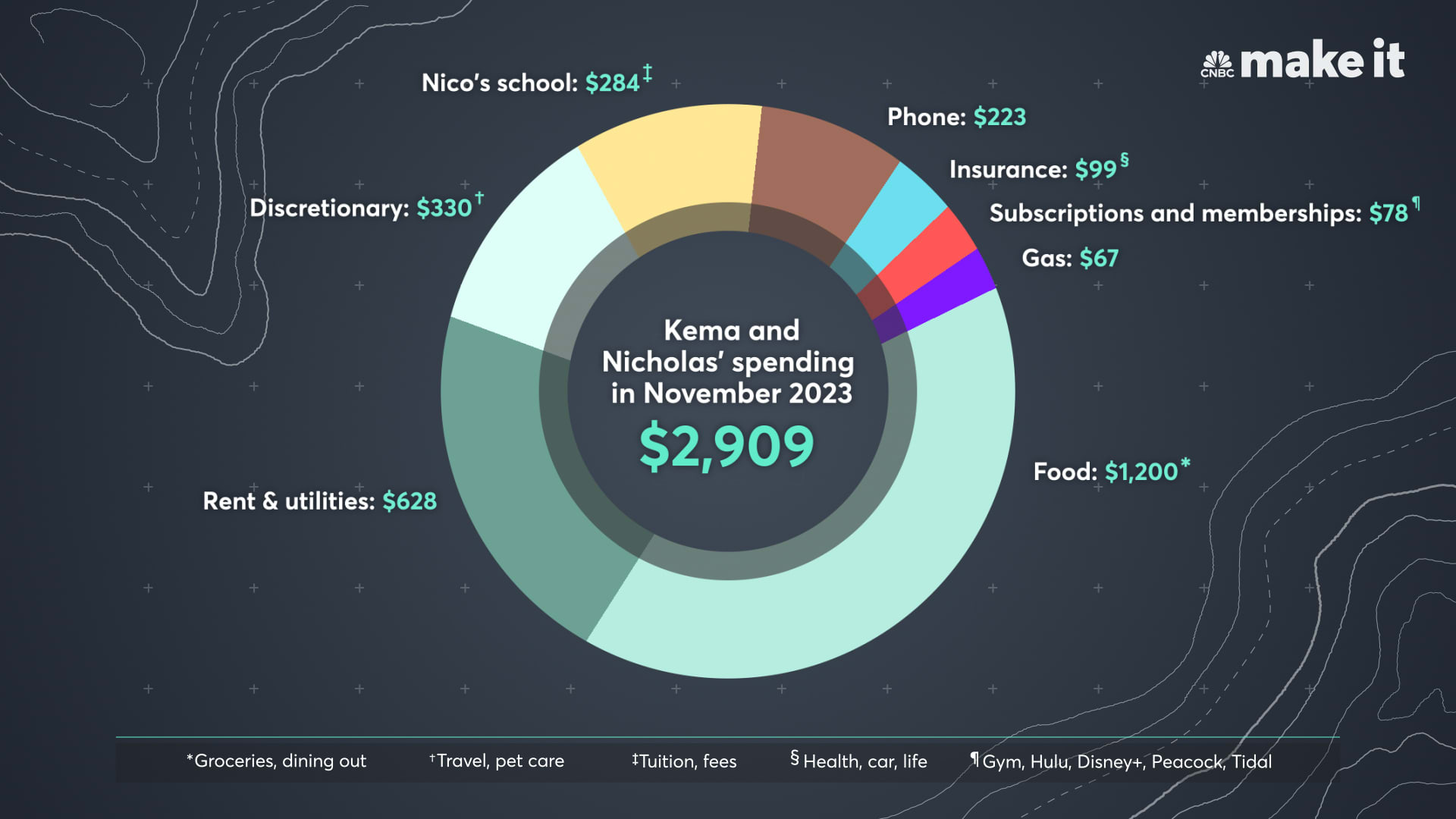
Kema Ward-Hopper never imagined she'd raise her children in the middle of a jungle.
But in 2018, after Hurricane Harvey destroyed her Houston home, a trip to Costa Rica with her husband Nicholas Hopper and then 9-year-old daughter Aaralyn became a permanent move.
Watch NBC6 free wherever you are
"The housing market was just insane in Houston because of so many people losing their homes to the storm," Ward-Hopper tells CNBC Make It. "At the time, we were living in a small garage apartment above a neighbor's home, with no relief in sight."
Hopper suggested they house hunt elsewhere. "I thought he meant we should move to a different city in Texas or a different state, but he looked at me and said, 'No Kema, let's leave the country,'" Ward-Hopper, 41, recalls.
Get local news you need to know to start your day with NBC 6's News Headlines newsletter.
From Hopper's perspective, moving to Costa Rica was a no-brainer.
The couple got married there in 2016 and had been itching to return, but life — whether it be bills, jobs or family obligations — kept delaying their plans.
"When we came back to Houston [after the wedding], we both had this calmness about us, and I felt like we were missing out on something by staying in the states," Hopper, 43, says.
In July 2018, after spending six weeks scoping out different neighborhoods along Costa Rica's northern coastline and debating if they were ready to become expats, the Ward-Hoppers signed a one-year lease on a house (or "casita" in Spanish) in the middle of the jungle on Costa Rica's Nicoya Peninsula.

The two-bedroom, one-bathroom house sat on seven acres of land in the middle of the jungle near Playa San Miguel and came with an outdoor kitchen as well as panoramic views of the Pacific Ocean — plus, rent was only $500 a month.
Money Report
"Ten years ago, I would not have believed you if you told me that this is where we would be," Ward-Hopper says. "But it feels like luck or fate led us here."
Fast-forward six years later, and the Ward-Hoppers are now permanent residents of Costa Rica, with no plans to move back to Texas. "We're a lot happier living here than in the U.S.," Ward-Hopper says.
Finding a healthier lifestyle for body and soul in Costa Rica
Another pivotal moment in the couple's decision to leave the United States was Ward-Hopper's cancer recovery.
In April 2016, mere months before her wedding, Ward-Hopper discovered she had stage 2B breast cancer.
"Undergoing chemotherapy was one of the hardest things I've ever done in my life," she says. "I only completed half of the prescribed infusions because I felt like if I did any more, it would kill me."
Ward-Hopper paused treatment right before her wedding. She expected to feel ill during her ceremony and honeymoon but, much to her surprise, Ward-Hopper says she felt better than she had in months while vacationing in Costa Rica.
"Suddenly I had enough energy to get up in the morning and do yoga and go on hikes, I was eating more," she says. "I really felt like I was healing while we were there, in no small part because of the fresh fruit, clean air and water."
The Nicoya Peninsula is one of the five original Blue Zones, home to the longest-lived people and highest life expectancies, according to longevity researcher Dan Buettner.
Some of the factors that make Nicoya a Blue Zone, Buettner discovered, are the Nicoyans' diet, which includes fresh fruit, vegetables and whole grains as well as their focus on family and community.
Both Ward-Hopper and her husband say that they saw immediate benefits from living in a Blue Zone for their health including getting sick less, losing weight, feeling more energized and less stressed.
An added bonus was the birth of their son Nico in 2020, even after doctors said chemotherapy had rendered Ward-Hopper unable to conceive. "I got pregnant within 13 months of living here, which I thought was impossible," she says. "It was a small miracle."

Nico's arrival also introduced another element of stability to their lives by making the entire family eligible for citizenship in Costa Rica. Previously, the Ward-Hoppers stayed in Costa Rica on tourist visas, which meant they had to leave the country every 90 days, time they used as opportunities to explore neighboring countries like Nicaragua or visit family in the U.S.
Ward-Hopper's doctors in the U.S. said they no longer detected cancer calls in her body in 2017, and in 2021, her doctor re-affirmed that she was cancer-free, an outcome she attributes in part to her decision to live in Costa Rica. For many breast cancer survivors, the risk of recurrence five years post-diagnosis significantly decreases, according to the American Cancer Society.
"Health-wise, I did a complete 180 after moving here," Ward-Hopper says. "I healed both physically and emotionally."
Ward-Hopper also credits Costa Rica's health-care system for her improved well-being.
As citizens, the Ward-Hoppers receive their health care through the CAJA system, a government-run program that grants 100% coverage for all medical procedures, appointments, hospital visits and prescription drugs. The Ward-Hoppers spend about $83 per month on their family's health-care plan.
Even when they were uninsured, Ward-Hopper says their medical expenses were negligible at best. "I remember one visit I had to the emergency room for chest pains and anticipating a bill that would cost thousands of dollars, as it would in the U.S., and it was less than $200," she adds.
Living comfortably on $30,000 a year
Right before they moved to Costa Rica, the Ward-Hoppers quit their corporate jobs as a research analyst and mortgage broker, respectively, to pursue new careers as entrepreneurs abroad.
Navigating their new careers — and lives — in Costa Rica didn't involve much of a language barrier, Ward-Hopper says, as most Costa Ricans speak English, and she and her daughter are proficient in Spanish. Hopper, meanwhile, is enrolled in a beginner Spanish course.
Ward-Hopper now balances four part-time jobs: She's a health and fitness coach, a Spanish teacher, a host for wellness retreats and, most recently, an author. She self-published her first book, "For my Beloveds: An End-of-life Journal for Guidance & Wisdom," in September 2023.
Last year, her different income streams earned her about $10,500, according to financial documents reviewed by CNBC Make It.
Hopper, meanwhile, runs his own remote logistics business, which earned him about $19,500 in 2023.
"Living here has allowed me to explore my passions so that my methods of earning income don't feel like a job, it just feels like I'm getting to do the things that I love to do, which is to be of service to others," Ward-Hopper says. "We make less money, but we're still living pretty comfortably … our money definitely goes further here than in the U.S."
In May 2023, the Ward-Hoppers moved to a three-bedroom, two-and-a-half-bath house in Nicoya to be closer to Aaralyn's school, which is public and tuition-free.
Here's a monthly breakdown of the Ward-Hoppers' spending (as of November 2023):

Food: $1,200
Rent and utilities: $628
Discretionary: $330
Nico's school tuition: $284
Phone (U.S. phone plan): $223
Insurance (health, life, car): $99
Subscriptions and memberships: $78
Gas: $67
Total: $2,909
Daily average: $97
Finding their forever home abroad
For the Ward-Hoppers, the biggest challenge of relocating to Costa Rica has been being far from their family and friends in the U.S., and also losing access to certain American resources and products, like Reese's peanut butter cups, a family favorite they haven't found in local supermarkets.
But by most measures, the Ward-Hoppers have found the qualify of life to be "much better" in Costa Rica than in the U.S.
"I've had great experiences in the U.S., but we can't deny the way that people of color are treated there, and we have not had that experience here at all," Ward-Hopper says. "In Costa Rica, I feel that people are treated as humans first, people are incredibly respectful and kind here."
In banks and grocery stores, for example, Ward-Hopper has noticed that people will encourage pregnant people and elderly customers to skip to the front of the line. "While it's not impossible to get that in the States, the baseline isn't this theme of love, acceptance and community the same way it is here," she adds.
The Ward-Hoppers say they plan to stay in Costa Rica for the rest of their lives, even if they plan extended trips to Africa, Europe and other countries in South America.
"This is where we always want to return to," Hopper says. "Ultimately, our goal is to build up our savings and build a nice finca [the Spanish word for "estate"] for our family here."
Hopper says the lower cost of living and community in Costa Rica has far outweighed any feelings of homesickness he's felt since the move.
He adds: "I'm definitely happier living in Costa Rica than I used to be in the U.S. I've gained my family back being here, I've gained the opportunity to spend more time with them and not only create more freedom in myself but also more freedom within our family to explore our dreams."
Want to land your dream job in 2024? Take CNBC's new online course How to Ace Your Job Interview to learn what hiring managers are really looking for, body language techniques, what to say and not to say, and the best way to talk about pay. CNBC Make It readers can save 25% with discount code 25OFF.






